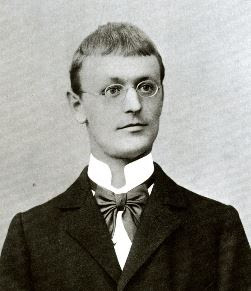Hermann Hesse & Psychoanalysis
Rilke is one example; Hesse another. For Hesse psychoanalysis--of the Jungian ilk--was an inestimable boon.
From Joseph Mileck's Hermann Hesse: Life and Art:
Excerpt #2 (on the possible dangers--in Hesse's opinion--of psychoanalysis for an artist):
[NB: Though I personally know next to nothing about the psychoanalytic "process," I think Excerpt #2 especially interesting re the fears that Rilke had of psychoanalysis stripping away his ability to create art.]
From Joseph Mileck's Hermann Hesse: Life and Art:
Toward the end of April, Hesse left for Sonnmatt, a private clinic near Lucerne. Here he was referred to J. B. Lang, an analyst who had been one of C. G. Jung's students. He was able to return to Bern at the end of May after some electrotherapy and but twelve three-hour analytical sessions. Sixty more visits to Lucerne took place from June 1916 to November 1917. Some of Hesse's anxieties were dispelled, he learned to cope more ably with his frustrations, and he slowly emerged from his deep depression.
Hesse's personal encounter with psychoanalysis had a profound effect upon his life and art. It provided him with the incentive necessary to appraise himself and his adjustment to life, and afforded him the insights needed to begin his long inward path (Weg nach Innen), that tortuous road that he hoped would lead to self-knowledge and ultimately to greater self-realization.
*
It's been a long while (1993) since I've read Soul of the Age: Selected Letters of Hermann Hesse (1891-1962) [translated by Mark Harman], but I thought there might be some interesting "bits" re psychoanalysis so I dug it out of my closet. Sure enough there are letters to both C. G. Jung and J. B. Lang. The one to Jung (1934, long after Hesse's sessions with Lang) is a reply to a letter from Jung to Hesse (not in the book) and, re psychoanalysis, is the more interesting.
Excerpt #1 (on the linguistic quibble re "sublimation"):
Your remarks about sublimation go to the heart of the problem, and demonstrate the difference between your view and mine. We're dealing, first of all, with an incidence of the linguistic confusion so prevalent nowadays--so many people use the same term but mean something different. You regard sublimation as a term best employed by chemists; Freud means one thing by it, and I have something else again in mind. Maybe some chemist originally conceived of the word sublimatio, I have no idea, but there's nothing esoteric about the word sublimis (or even sublimare): it's classical Latin.There would be no difficulty resolving that particular point. But this time there are real issues at stake behind the linguistic quibble. I agree with your interpretation of the Freudian concept of sublimation. I wasn't trying to defend Freud's notion, but rather the actual concept itself. I feel that it's an important concept where cultural issues are concerned. And this is where we part company. As a physician, you regard sublimation as something volitional, the transference of a drive to an alien sphere of activity. In the last resort I, too, regard sublimation as a form of "repression," but I only use that lofty term in cases where it's possible to speak of "successful" repression--i.e., the effects of a drive on a sphere that is no doubt alien, but also extremely significant in the cultural sphere, art.
Excerpt #2 (on the possible dangers--in Hesse's opinion--of psychoanalysis for an artist):
That is why psychoanalysis is such a difficult and dangerous experience for artists. Those who take it seriously might easily have to refrain from all artistic activity for the rest of their lives. That is fine if the person is just a dilettante, but in the case of a Handel or a Bach, I feel we could do without psychoanalysis if we got Bach in return.
[NB: Though I personally know next to nothing about the psychoanalytic "process," I think Excerpt #2 especially interesting re the fears that Rilke had of psychoanalysis stripping away his ability to create art.]



Comments